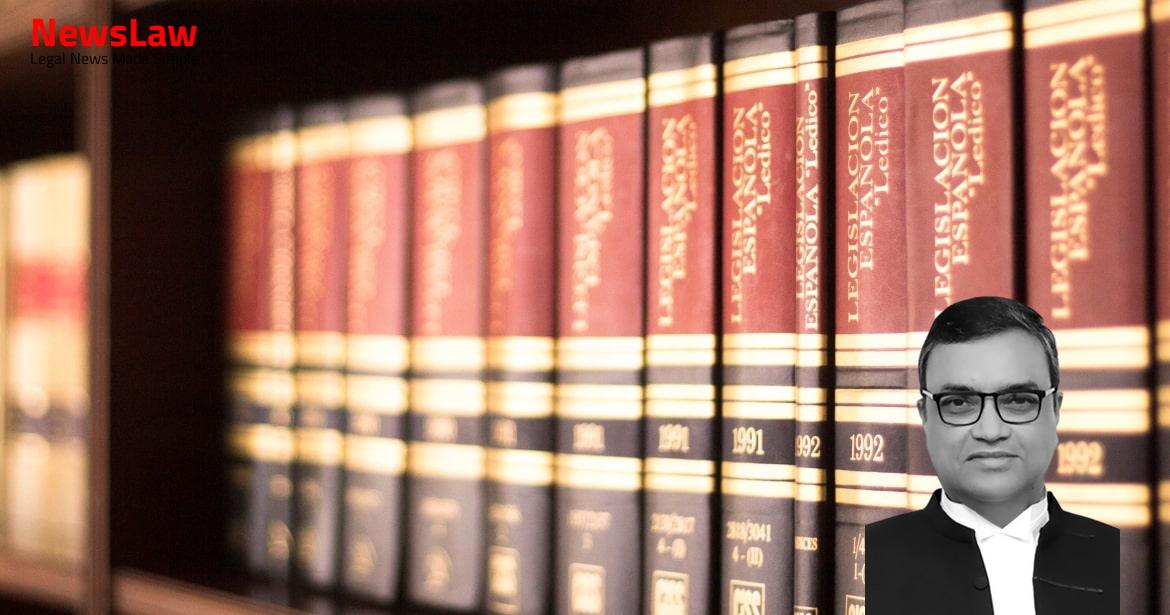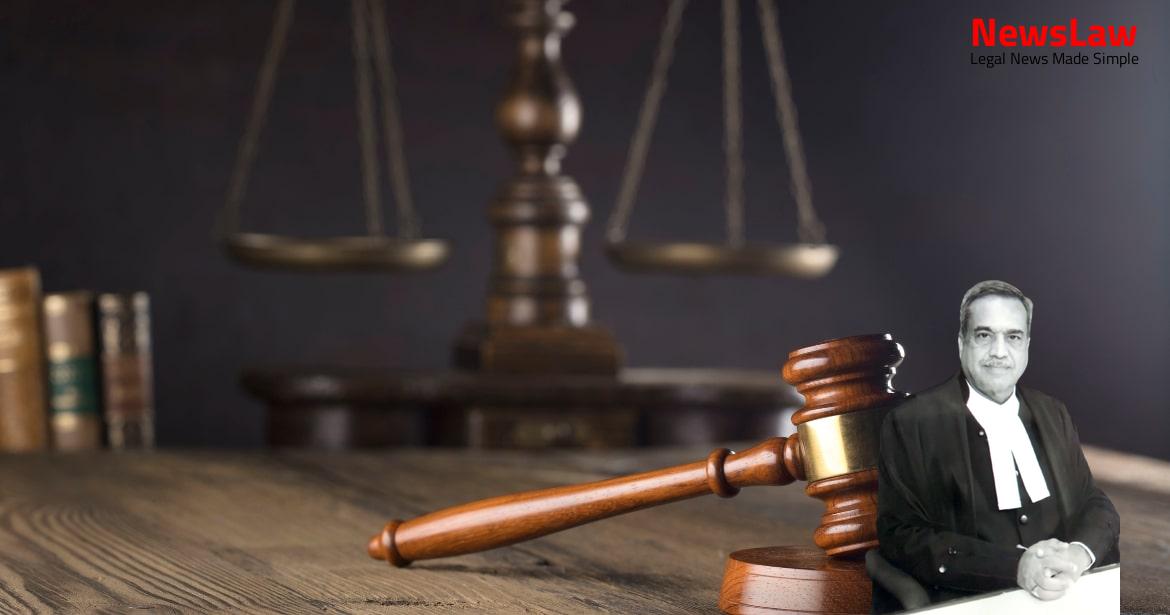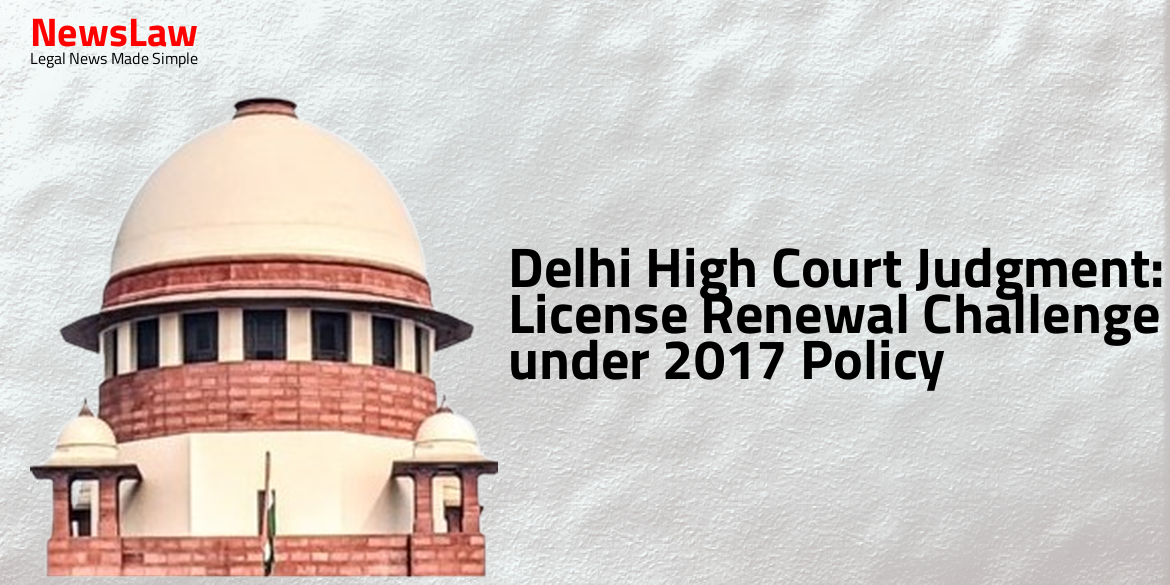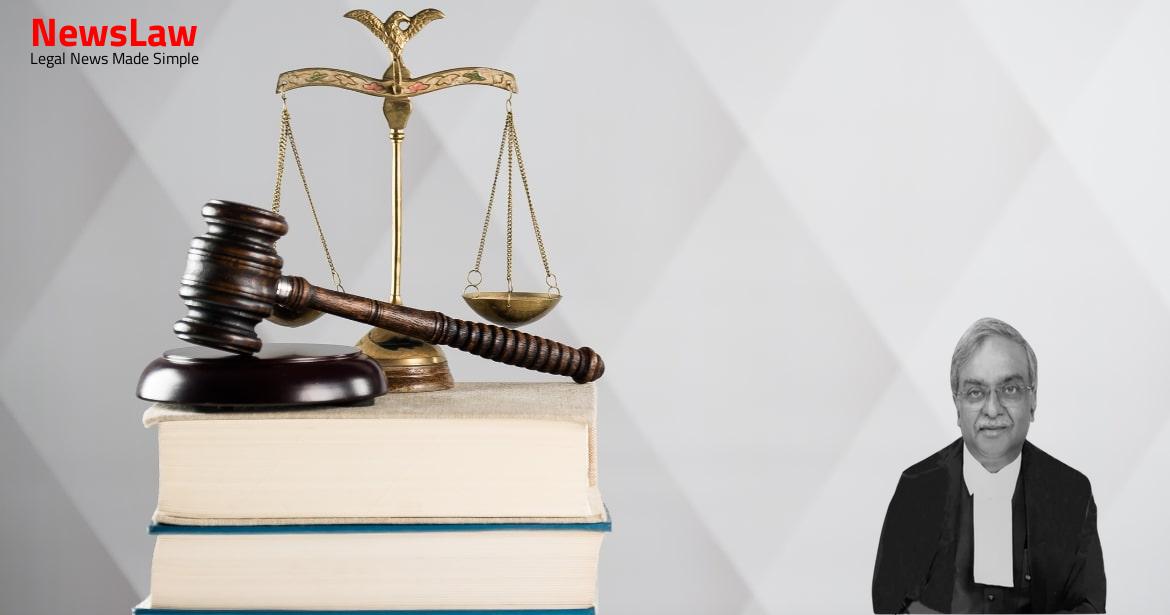The High Court, for the reasons assigned in the impugned judgment, declared section 9-D of the Central Excise and Salt Act, 1944 (hereafter ‘Excise Act’, for short) as intra vires while dismissing the writ petitions.
Bagaria, the principles laid down by the High Court in the impugned judgment ought to have been applied to test the legality and correctness of the impugned action of the department and there being apparent breach of such principles at the end of the department, the High Court committed an error of law in not deciding the other issues raised in the writ petitions. Bagaria, the High Court could not have stopped at deciding the issue of vires of section 9-D by reading it down and summarizing the conditions precedent in-built into it and it was obligatory for the High Court to decide the writ petitions in its totality; and while so deciding, to declare whether on the parameters of the conditions precedent in section 9-D, as laid down in the impugned judgment, the petitioners were entitled to any relief or not.
Bagaria was that if the effect of the principles and pre-requisites laid down by the High Court vis- -vis the appellants’ case were to be left undecided, the entire proceedings continuing since the last several years would simply be rendered academic.
Such notices primarily relied on the statements of 75 (seventy-five) witnesses to establish the recovery of prices higher than the declared prices and flow back of additional amounts to the appellants. Since the show-cause notices were spread over a thousand pages and 600 (six hundred) of which were related to 63 (sixty-three) statements on which the department had placed reliance, the appellants on 6 March, 1991 made a request for cross-examination of 31 (thirty-one) witnesses.
The petitioners had preferred appeals before the Tribunal for the period relevant to WP(C) 1854/1992 and 1895/1992.
The common grievance of the petitioners was noted by the High Court in paragraph 3, that they had invoked the writ jurisdiction feeling aggrieved by denial of adequate opportunity to cross-examine certain witnesses whose statements were recorded by the excise authorities in the course of investigation.
Also Read: https://newslaw.in/supreme-court/appellant-convicted-for-culpable-homicide-not-amounting-to-murder/
Whether this Court would be justified in reading down or interpreting Section 9-D of the Act as suggested by counsel for the petitioner company when three appeals involving the validity of the orders passed by the Collector and the CEGAT placing reliance upon Section 9-D of the Act are pending before the Supreme Court? Even assuming that the dismissal of two appeals filed by the petitioner involving the same question is not indicative of the Court finding infirmity either (sic, in) the procedure adopted by the adjudicating authority or in the interpretation placed upon Section 9D(1)(a) by the saidauthority or the Tribunal, the contrary interpretation which petitioner wishes this Court to place upon Section 9D is a matter still open to the petitioners before the Supreme Court.
Such an academic exercise need not be undertaken by this court nor is any duplication of the process of interpretation (sic) Question number 1 is, therefore, answered in the negative.”
In the light of the answer no.
However, as these matters are pending for a long time, we would request the High Court to consider the desirability of disposing of thewrit petitions, filed by the appellants, as expeditiously as possible, preferably without a period of three months from the date of communication of this order. Thus, we summarize our conclusions as under:- (i) We are of the opinion that the provisions of Section 9-D(2) of the Act are not unconstitutional or ultra vires; (ii)
Also Read: https://newslaw.in/supreme-court/ownership-dispute-commissioners-order-and-revenue-documents/
While invoking Section 9-D of the Act, the concernedauthority is to form an opinion on the basis of material on record that a particular ground, as stipulated in the said Section, exists and is established; (iii) Such an opinion has to be supported with reasons; (iv) Before arriving at this opinion, the authority would give opportunity to the affected party to make submissions on the available material on the basis of which the authority intends to arrive at the said opinion; and (v) it is always open to the affected party to challenge the invocation of provisions of Section 9-D of the Act in a particular case by filing statutory appeal, which provides for judicial review”. This Court while remitting the writ petitions to the High Court for hearing the same afresh had taken note of the fact that, inter alia, the appellants’ appeals bearing Civil Appeal Nos. At this juncture, from paragraph 1(xxiv) of the Statement of Case filed on 10 December, 2012, we also note that pursuant to the remand ordered by this Court as above, the Tribunal disposed of the statutory appeals confirming the demands against Kanpur Cigarettes Pvt. Pursuant to the liberty given by the High Court, the appellants filed an application for amendment mentioning in detail as to how and for what reasons invocation of section 9-D by the Commissioner was illegal and also challenging the vires of section 9-D of the Excise Act. Bagaria that the parameters of section 9-D were completely ignored while the adjudication orders were made could have been regarded to be of some worth and engaged our attention if only any remedy by way of an appeal before the departmental authority or by a petition before any court were open to be pursued by the appellants as on date these civil appeals came up for consideration before us.
Case Title: GTC INDUSTRIES LTD. (NOW KNOWN AS GOLDEN TOBACCO LIMITED) THROUGH MANAGER LEGAL Vs. COLLECTOR OF CENTRAL EXCISE NEW DELHI (2023 INSC 111)
Case Number: C.A. No.-008583-008584 / 2010



